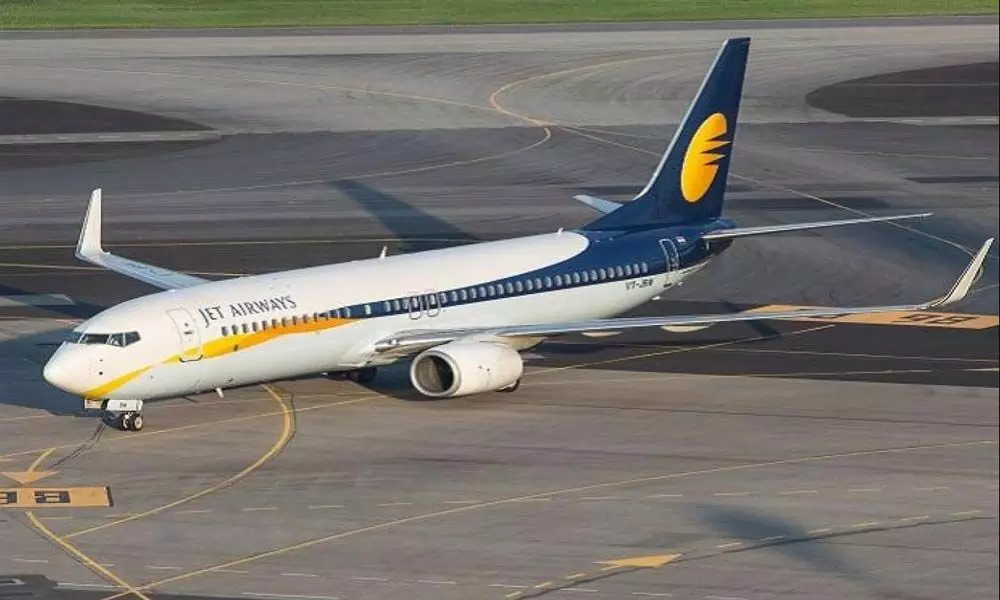Jet Airways revival a welcome development
Another player in the industry will add to the competition and benefit consumers in the long run
image for illustrative purpose

There is big news for the aviation industry as doors are finally opening for the revival of Jet Airways with the approval given recently by the National Company Law Tribunal to a financial consortium's resolution plan for the airline. The approval is just the first step in what is likely to be a long haul in rehabilitating the airline. It shut down suddenly in 2019 due to massive losses, creating serious disruption in the civil aviation sector. The prospect of its resurgence comes just as the aviation sector is in a deep slump with a sharp dip in passenger traffic owing to the pandemic. There is no doubt, however, that another player in the industry will add to the competition and benefit consumers in the long run.
The new owners are reportedly keen to resume operations within six months, but it looks as if achieving this target may be a difficult task. Analysts are estimating that the total investment needed for revival will be about Rs 25,000 crore. This includes Rs 10000 crore for the sale as well as key approvals and Rs 15,000 crore for working capital to bring operations back to normal levels. It must also be recognized that the UK based financial advisory firm, Kalrock Capital and the UAE based businessman, Murari Lal Jalan who won in the bidding process under the Insolvency Code, lack experience in the aviation sector. They will therefore have to spend time and effort to bring in seasoned professionals, both from here and abroad to run the airline efficiently.
The return of Jet may also alter the existing market share of the airline industry, even though plans to remain a full service operator are daunting in a price sensitive market like India. Budget airlines currently dominate the skies in this country. The lion's share of the market at 55 per cent is held by the highly successful low cost Indigo. Far below in second place is SpiceJet with 12.8 per cent of the market followed closely by Air India at roughly 12 per cent. The state-owned carrier has had its share fall in the past year owing to government commitments to repatriate India under the Vande Bharat programme owing to the pandemic. But this has rebounded in the past few months back to double digit levels even though it remains one of the few to continue full service operations.
Other players in the market include GoFirst which has just changed its name from Go Air followed by the Tata-owned Air Asia and Vistara. The last retains full service operations but so far has the smallest share of the market.
In this backdrop of entrenched market shares, there is no doubt that the fledgling new entity with the iconic brand name, Jet Airways, will take quite some time to forge its re-entry into the marketplace. The first hurdle is going to be negotiations with the government over grant of airport slots as the tribunal has already clarified that the airline's previous ones will not be available. For the time being this will pose a problem as many slots are vacant due to paucity of flights during the pandemic.
And this brings one to the second major hurdle facing the airline, which is the state of the industry today as a result of the repeated Covid surges in this country. The situation had begun to improve in January this year when the government had allowed an increase in capacity utilization from 50 to 80 per cent. This was then reversed again to 50 per cent of pre-Covid levels in June owing to the second wave that overwhelmed the country. As a result there has been a consequent decline in passenger traffic. It fell by an overall 62 per cent in 2020-21 but there was an upswing in the January-March quarter. This was followed by another slump in April and May of 27 and 43 per cent respectively.
The crisis in the aviation industry has been compounded by rapid increases in aviation turbine fuel prices, one of the biggest expenses faced by airlines. The global aviation industry has been facing an equally challenging outlook having suffered huge losses in the last one and a half years owing to curtailment of travel due to the fear of infection.
It is in this dismal backdrop that the new airline will have to rise literally like a phoenix from the ashes. Apart from investment both in terms of buying aircraft and recruiting personnel, Jet Airways will have to face the headwinds of reduced passenger traffic as the pre-Covid scenario in the travel industry still looks a while away. Even when it returns to normal for leisure travel it is clear that business travel forms big chunk of airline revenues, will be vastly reduced owing to continuation of work from home norms.
At the same time, the addition of yet another domestic carrier can only be welcome for consumers. It will increase competition and ensure that airlines are not able to arbitrarily impose terms and conditions upon passengers in a host of areas. As a full service operator, however, it has to be seen whether it can regain the status of Jet Airways of the past which had been operating in the country for as long as 25 years before its closure.
The value of the brand name is immeasurable. But whether a profitable and efficient carrier can be created with this single advantage can only be judged in the days to come. For the sake of the consumer, however, one must hope that there are no serious hiccups in its revival and it becomes a reality in the long run.

